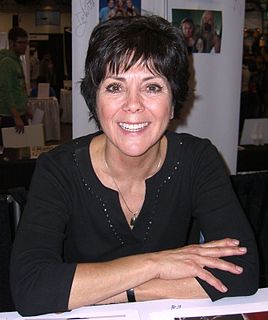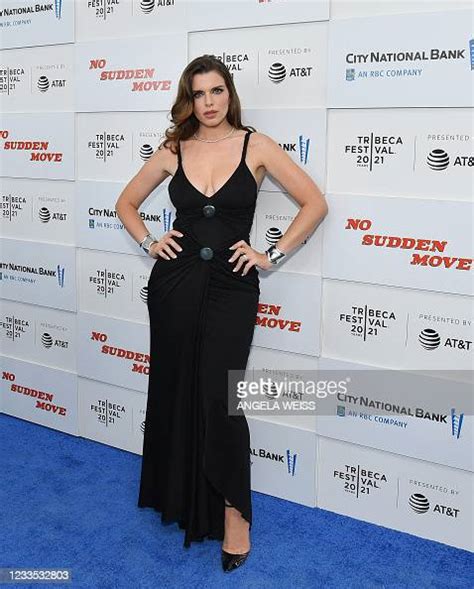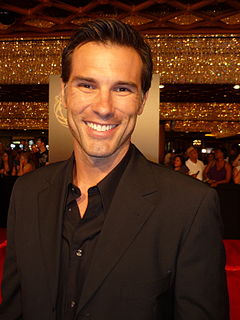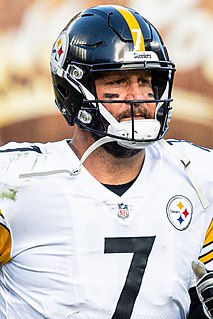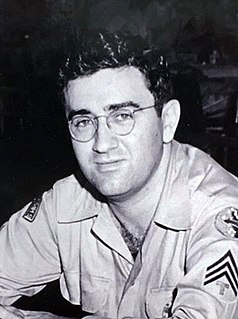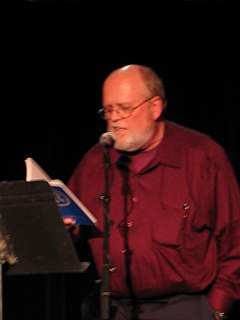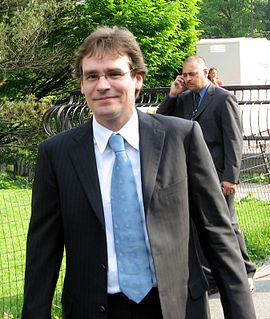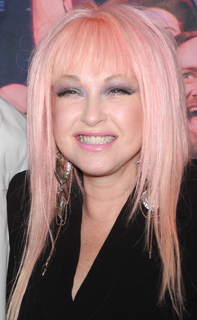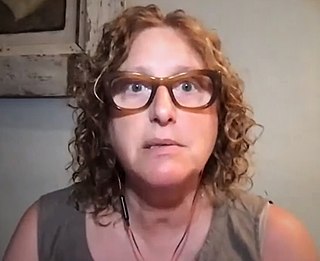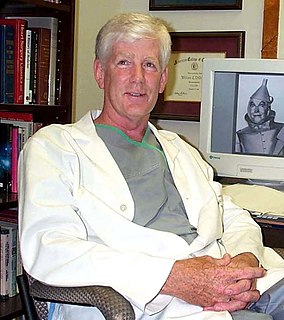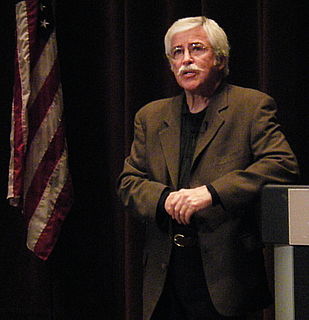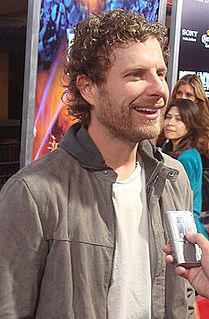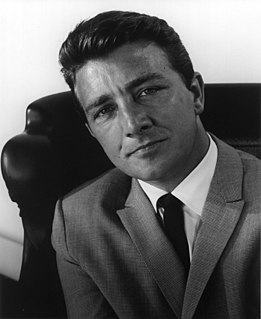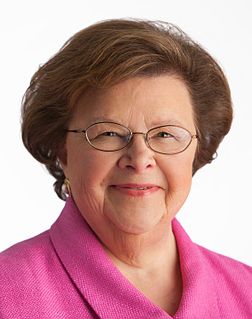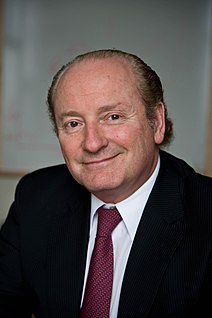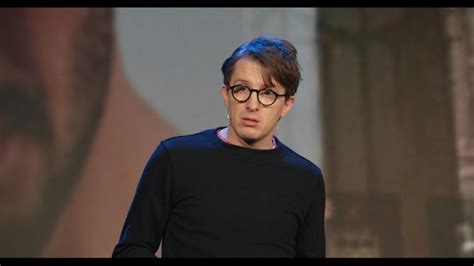Top 247 Clark Quotes & Sayings - Page 4
Explore popular Clark quotes.
Last updated on April 18, 2025.
I don't like answering to other people's philosophies. I don't have any philosophy, I just believe in stuff. Either I believe in something or I don't. Like, I believe in the Rolling Stones but not in the Dave Clark Five. There's nothing philosophic about it. Whenever I'm linked with a movement, it pisses me off.
Stop seeing socialists and anti-Americans as Democrats. When a Michael Moore compares beheaders to our own Minutemen and laments that too many Democrats were in the World Trade Center, he deserves no platform alongside Wesley Clark or a seat next to Jimmy Carter or praise for his pseudo-dramas from high Democrats.
I used to go to all the environmental conferences when I wasn't an invited speaker. I was just somebody in the back taking a lot of notes. It was when I was least visible that I came up with the most cool stuff. Now, because I don't get to be Clark Kent, I feel like my learning curve is slowing way down. I'm always afraid the conversation will move on and I'll be up at the front of the room saying last year's speech.
I disagree that Blood Will Out is a memoir in the conventional sense. It's the story of a relationship, primarily, not an individual. The "me" in the book is a specialized version of me, the person who Clark manipulated and fooled. I could cover the same years of my life from an entirely different perspective in another book, by concentrating on my experience as a husband, say. But I was selective. I focused on my duping.
What's happening is the language. Not only in the usual sense of being interesting (which it is), but in the new sense that words are events, as real and important in themselves as wars and lovers... It is to the word, then, that the mind moves, and the word responds by taking on a physicality, even a sensuality, we have all been trained to ignore. Words have weight, and the distance between two can be a chasm filled with forces of association... What Clark is doing is genuinely new.
Clearly, there's a real onus on you to do something correctly when everybody, at least in the United States, had a really clear, specific idea of what this guy looked like - and even more so, what he looked like as Clark Kent and as Superman. You have this whole vast audience of people who would be acutely aware of any deviation whatsoever and probably holding you to a slightly higher standard as a result.
The first time I went to New York, I went with my first boyfriend, Clark. His dad had just bought an apartment in New York, and my dad dropped us off, and we were there for a week on our own. I must have been 15 or 16. I remember I went to Harlem and bought a goose jacket. That was the hip, hot thing.
The ‘I’ character in journalism is almost pure invention. Unlike the ‘I’ of autobiography, who is meant to be seen as a representation of the writer, the ‘I’ of journalism is connected to the writer only in a tenuous way—the way, say, that Superman is connected to Clark Kent. The journalistic ‘I’ is an overreliable narrator, a functionary to whom crucial tasks of narration and argument and tone have been entrusted, an ad hoc creation, like the chorus of Greek tragedy. He is an emblematic figure, an embodiment of the idea of the dispassionate observer of life.
I never found the companion that was so companionable as solitude. [It allows you to] be the Mungo Park, the Lewis and Clark of your own streams and oceans; [to] explore your own higher latitudes; [to] be a Columbus to whole new continents and worlds within you, opening new channels, not of trade, but of thought.
'All the Stars in the Heavens' takes place during the golden age of Hollywood, around an imagined story about Loretta Young; Clark Gable; Alda, a young woman with a secret who is preparing to become a nun but is cast out of her convent; and the scenic artist she meets on the set of 'The Call of the Wild.' It's a big, lush historical novel.
I got to talk to people like Mel [Lewis] and Milt Hilton and Benny Carter and Clark Terry and... Jay McShann. I just found myself in some circumstances, on some gigs or sometimes in clubs, with the ability to talk to some of these people. Just being around their energy and being around that history was invaluable. And what I normally say to young people that are getting into the music, if you can and go... now there's less of those folks around, sadly.
I learned, having played Marcia Clark, what the value of that is in your life because it can affect everything, every choice you make, the way you deal with a stranger on the street, or your best friend or lover. It's a powerful thing to know yourself and to have the commitment and the courage to let that be your guide.
I did a story for the Geographic on Meriwether Lewis and William Clark, and Stephen Ambrose was the writer. He said, "I've got the easiest job in the world. I just have to re-tell the story of the greatest fishing, camping, hunting, canoeing trip of all time. You, Sam, have the hardest job, which is, pretend like nothing has happened in the last 200 years.
We all felt the majesty of the body. In a very short period of time we had seen something that was bigger than each of us. A lot of people, even those who were not religious, were reverent and attributed the success to God. As we saw the artificial heart beat in Dr. Clark, the feeling was not aren't we great, but aren't we small.
I knew that I could never again raise my voice against the violence of the oppressed in the ghettos without having first spoken clearly to the greatest purveyor of violence in the world today - my own government.... There is something strangely inconsistent about a nation and a press that would praise you when you say, 'Be nonviolent toward Jim Clark,' but will curse and damn you when you say, 'Be nonviolent toward little brown Vietnamese children!' There is something wrong with that press.
The Lewis and Clark tale has all the all the elements that one would want to put into a movie. It has the, continual threat for life; it's got the thread of Indians; it's got disease. It has daily risk where these men may go under the water. It's got the fight with the elements. It's got the el the role of the unknown continually threatening them.
Superheroes are also about immigrants. Superman, the prototype of all superheroes, is a prototypical immigrant. His homeland was in crisis, so his parents sent him to America in search of a better life. He has two names, one American, Clark Kent, and the other foreign, Kal-El. He wears two sets of clothes and lives in between two cultures. He loves his new country, but a part of him still longs for his old one.
Back then, the business depended on bohemians. ... They needed Kristofferson and Roger Miller ..It was the tail end of something...the last Tin Pan Alley. ...and we were the night shift! They gave us keys, because they knew the best songs weren't written in daylight.... We got our keys taken away several times...me and Guy Clark.
It's important to me that on 'Family Feud' I could kiss all the people. It sounds crazy but when I first came here Petula Clark was on a show with Nat King Cole and he kissed her on the cheek and eighty-one stations in the South canceled him. I kissed black women daily and nightly on 'Family Feud' and the world didn't come to an end, did it?
So, Wesley Clark is running for president. Pretty amazing guy. Four star general, first in his class at West Point, supreme commander of NATO, saw combat in Vietnam, won the bronze star, silver star, the purple heart for being wounded in battle. See, I'm no political expert, but that sounds pretty good next to choking on a pretzel, falling off a scooter and dropping the dog.
've always defined a truly alluring story as a journey we're not equipped to take ourselves with a person we're tempted but afraid to emulate. Impostor narratives are exactly that. When they end in disaster, as Clark's did, or as Gatsby's did, we can congratulate ourselves for our own wisdom. We can also experience, safely, at no cost, the terrible thrill of radical self-invention, of trading who we are for who we might be.
Clark, what in your honest opinion is the right standard for determining conduct? Is the only right standard for everyone, the probable action of Jesus Christ? Would you say that the highest, best law for a man to live by was contained in asking the question 'What would Jesus do?' And then doing it regardless of results? In other words, do you think men everywhere ought to follow Jesus' example as closely as they can in their daily lives?
At first, it was really weird after being a touring stand-up comedian that wears just jeans and a shirt. But now, it's almost like when you go from Clark Kent to Superman: "All right, I've got to go put on a suit and interview Justin Trudeau." It feels like it's part of the process. Oddly enough, I've been in enough places - they sometimes send you to places that are a bit scary - that I know how to run in a suit. Like, run fast.
Last year a friend went dark in a nervous city alone, the sea flashing against his glasses, the sea sorted out at last in his inner ear so he could leave this world as he'd entered it through the undependable irrational influence of water. -Kevin Jeffery Clark It was as if what I wanted to kill wasn't in that skin or the thin blue pulse that jumped under my thumb, but somewhere else, deeper, more secret, and a whole lot harder to get at.
We collectively have a special place in our heart for the manned space flight program - Apollo nostalgia is one element, but that is only part of it. American culture worships explorers - look at the fame of Lewis and Clark, for example. The American people want to think of themselves as supporting exploration.
To have some parts flowing free again . . . with deer grazing on its banks . . . ducks and geese raising their young in the backwaters . . . eddies and twists and turns for canoeists . . . and fishing opportunities such as Lewis and Clark enjoyed . . . would be the finest possible tribute to the men of the Expedition, and a priceless gift for our children.
And I don't want to look at you every day, to see you naked,to watch you wandering around the annexe in your crazy dresses and not...not be able to do what I want with you. Oh, Clark,if you had any idea what I want to do to you right now.And I...i can't live with that knowledge. I can't. It's Not who I am. I can't be the kind of man who just...accepts.
Wes Clark is a man of whom you can ask a question, and he will look you directly in the eye, and give you the most truthful and complete answer you can imagine. You will know the absolute truth of the statement as well as the thought process behind the answer. You will have no doubt as to the intellect of the speaker and meaning of the answer to this question....So you can see, as a politician, he has a lot to learn.
If education really educates, there will, in time, be more and more citizens who understand that relics of the old West add meaning and value to the new. Youth yet unborn will pole up the Missouri with Lewis and Clark, or climb the Sierras with James Capen Adams, and each generation in turn will ask: Where is the big white bear? It will be a sorry answer to say he went under while conservationists weren't looking.
Motherhood is not what was left over after our Father blessed His sons with priesthood ordination. It was the most ennobling endowment He could give His daughters, a sacred trust that gave women an unparalleled role in helping His children keep their second estate. As President J. Reuben Clark Jr. declared, motherhood is ‘as divinely called, as eternally important in its place as the Priesthood itself.’
Ms. Wormwood: Calvin, can you tell us what Lewis and Clark did? Calvin: No, but I can recite the secret superhero origin of each member of Captain Napalm's Thermonuclear League of Liberty. Ms. Wormwood: See me after class, Calvin. Calvin: [retrospectively] I'm not dumb. I just have a command of thoroughly useless information.
Producing a series is like being Lewis and Clark: You know where you're going, you just don't know how you're going to get there. When people say, 'You should create a bible for your show,' I say, 'You don't want a bible. It'll prevent you from making discoveries along the way.' And that's what happened on 'The X-Files.'
I remember it when I used to go out, I used to dress as Superman, but then I used to dress as Superman dressed as Clark Kent. So, actually, I would be like a little seven-year-old boy going out in a business suit. But I would never expose the fact that I was Superman, but I knew, that should there be any trouble, I could take care of it.
The thing with Superman is that he's completely emotionally open to the reader. Meaning what he tells you is what he's feeling; there's a transparency there. And what he tells other characters is usually as transparent as can be. What he says he believes in. So there's an honesty that is both really inspiring writing the character. One thing I love about Clark Kent is that there is a badassery that you don't see a lot. Even as Superman, he's always kind of restraining himself. When you challenge him, I think there's nobody that has a stronger spine than Superman.
I don't know where "bro country" came from or what it really means, but a lot of those guys are my buddies and I support their music. Within country there are lots of styles: stone-cold country, like Brandy Clark, and there's Florida Georgia Line with what they do, which is completely different and bringing a whole new audience. There's room for everyone.
If you'd bothered to ask me, Clark, if you'd bothered to consult me just once about this so-called fun outing of ours, I could have told you. I hate horses, and horse racing. Always have. But you didn't bother to ask me. You decided what you thought you'd like me to do, and you went ahead and did it. You did what everyone else does. You decided for me.
